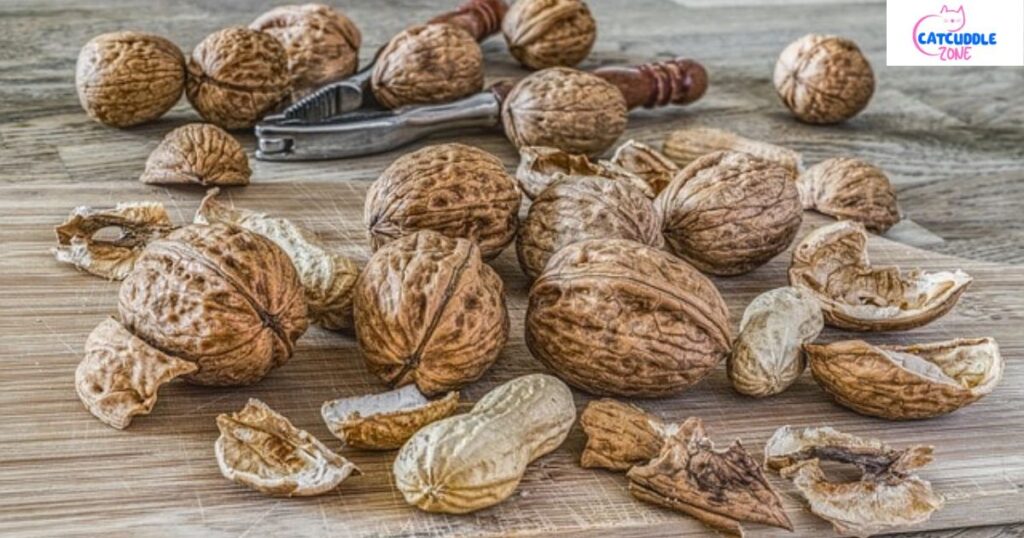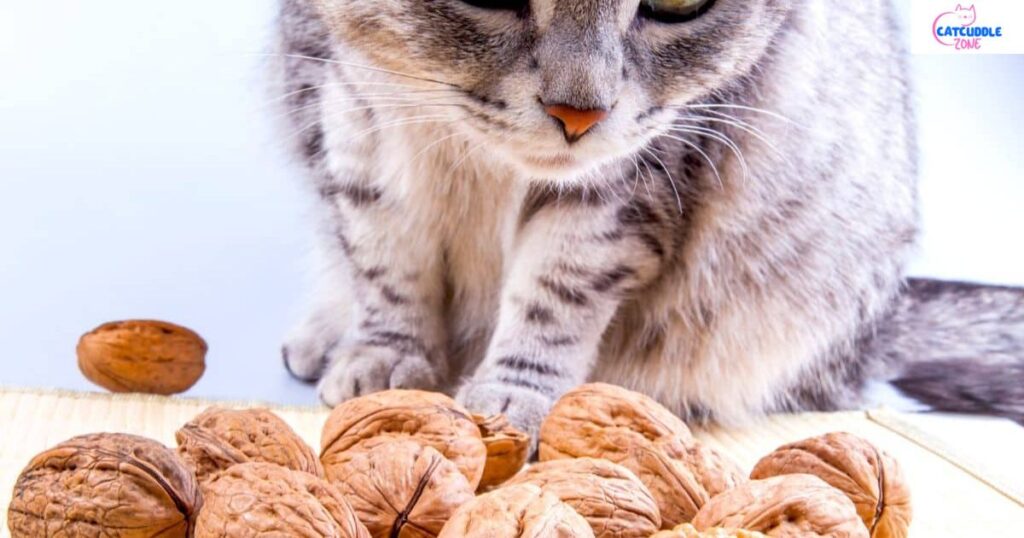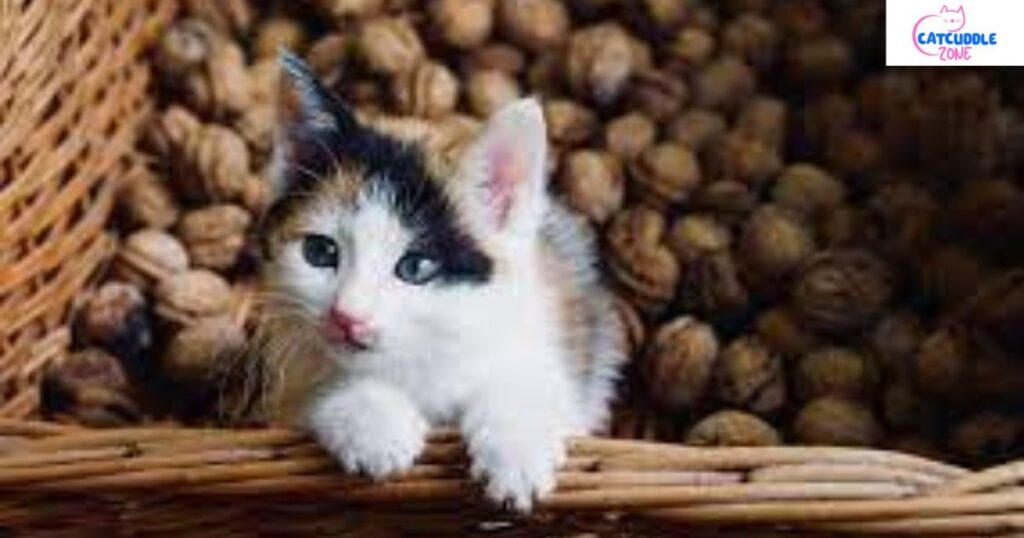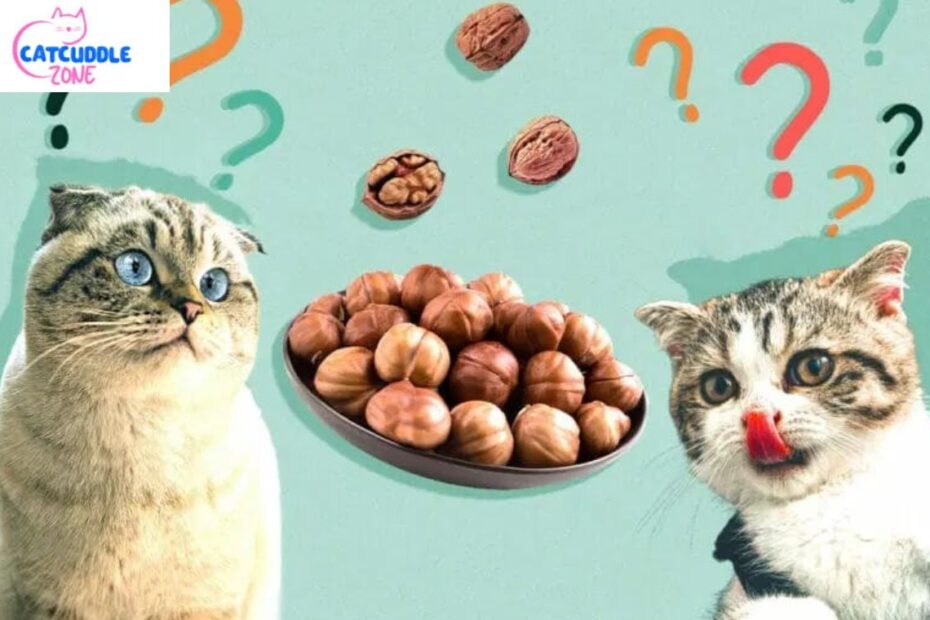Curiosity is inherent in cats and the tendency at trying out human food can be an alarming one to the pet parents. Many have been asking the question whether or not cats can eat walnuts. Although walnuts are rich in healthy fats and nutrients to humans, they are not safe in cats. Nuts should never be fed to cats because their digestive system is not adapted to cope with these items and this can easily result in an upset stomach or serious complications. As a matter of fact, vets caution that walnuts and pets are just incompatible. There are a variety of reasons why walnuts should not be put on the menu of your cat, including health problems such as the possibility of long-term health factors, as well as the toxicity of walnuts.
What Are Walnuts? Nutritional Breakdown for Humans
These tree walnuts are also claimed to be rich in nutrients containing high levels of omega-3 fatty acids, protein, and antioxidants. When a human consumes walnuts, it can also help him stay healthy in his brain, inhibit inflammation, and strengthen his cardiovascular capabilities. These also include minerals and vitamins like magnesium, copper and B6 and B6 vitamins. This is what renders the walnuts a significant constituent of a majority of healthy diets.
And we see that when we come to walnuts and digestion in the case of cats, the matter assumes a very different aspect. The cat digestive tract does not have the means to process nuts, seeds, or a high level of fiber. Although walnuts can support human bodies, walnuts have no nutritional value in cats and they harm them instead. They are different in that cats are obligate carnivores whose systems can only thrive on protein and animal-based nutrients as opposed to plant-based fats and fibers.

Can Cats Eat Walnuts Safely? Vet Insights
Veterinarians concur and say you should never feed your cat walnuts. Even minimal quantities will lead to an upset stomach in cats, leading to vomiting in cats, diarrhea in cats, loss of appetite in cats, and abdominal pain in felines in the worst case scenario. In general, nuts are considered among the bad foods cats should never eat, and walnuts lead the list of harmful nuts because of fat content and mold risks.
The problem is that occasional bites of an inanimate bite may not necessarily cause problems that threaten life, but still, they should not be disregarded. Walnuts and cats do not go well together. The hazards of walnuts to cats are more than enough to outweigh their perceived benefits, and cats vets highly recommend their avoidance. Please be reminded that walnuts induce stomach upsets in cats even when licked by your feline over a small piece.
Why Walnuts Are Unsafe for Cats (Risks & Toxins)
The first drawback is their high fat content, which will easily cause gastrointestinal時代 in cats, abdominal pain in cats, and pancreatitis as time progresses. Nuts are hard and oily which make them very challenging for cats to digest. That is why cats & walnuts will never be safe.
Another lurking danger is mold contamination with walnuts especially on old walnuts or those that have not been stored properly. Mold has the ability to produce tremorgenic mycotoxins that cause neurological signs in cats, including seizures and tremors in cats, dizziness, and even collapse. Some cats become susceptible to rapid breathing in cats and fast heart rate in cats even in minute exposure to contaminated walnuts and would need to seek emergency veterinary care.

Salted & Flavored Walnuts: Added Dangers for Cats
The walnuts in salt even more are lethal. Salt is poisonous to cats, and eating of salt may result in salt poisoning of the cat. Symptoms include vomiting and diarrhea in cats and, in larger quantities, include kidney damage in cats, dehydration and even coma due to salt poisoning.
Nuts that contain flavor such as chocolate-coated nuts or spiced nuts have dangers on their own. Cats and chocolate are incompatible, because chocolate includes caffeine and theobromine. The two compounds result in theobromine toxicity in cats that displays the symptoms of chocolate poisoning in cats such as restless behavior, tremors/twitching, and seizures. Flavored and salted walnuts are twice the menace.
What to Do If Your Cat Accidentally Eats Walnuts
If your cat has eaten walnuts, don’t have a panic attack but don’t ignore it either. Get rid of any leftover nuts, keep an eye on your cat closely, see if it shows poisoning symptoms in cats like vomiting, lethargy or tremors. Do not attempt home remedies or encourage vomiting unless a veterinarian tells you,
Rather, contact your veterinarian or an emergency veterinarian clinic and get vet-approved instructions on how to handle cats. They can advise you to take your cat to be examined. Cats with salt toxicity or dogs that ingested nuts often receive IV fluids and electrolyte corrections, nausea medication, and attention to noticing neurological complications.
Symptoms of Walnut Poisoning in Cats to Watch For
Cats respond in different ways to toxins, however, there are some general symptoms that cannot be ignored. Mild manifestations are vomiting and diarrhea in cats, decreased appetite in cats and mild dehydration. Worse complications appear as neurological symptoms in cats in the form of twitching, confusion or even seizures and tremors.
Additional red flags are pain in the abdomen in cats, rapid breathing of the cat, debilitation, and rapid heart rate in cats. The worst cases can include salted or flavored nuts where your cat will exhibit kidney issues in cats, severe dehydration or collapse. Only cat emergency care may save the cats by that time.
Safe & Healthy Alternatives to Walnuts for Cats
Fortunately, there are lots of healthy food choices that cats can have and that are not dangerous. Cat snacks are meat-based snacks, as opposed to nuts. Sliced up plain cooked pieces of chicken, Turkey, or fish are good. All these options promote normal digestive health in cats without any adverse side effects.
You can also introduce bits of safe fruits such as blueberry or melon. The following are perceived to be safe snacks to cats when taken in moderation. Nevertheless, never force food rapidly into the diet and consult your veterinarian. These alternatives will not produce an upset stomach on cats, or expose them to toxins, unlike walnuts.

Best Snacks and Treat Options for Cats (With Vet Tips)
The best and the safest option are store-bought snacks that are targeted toward cats. They are formulated with the digestive system of the cat as the target and exclude harmful additions. When picking out treats, read labels and look at treats that are higher in protein and lower in fillers.
When pet parents prefer to make meals at home, even such an ordinary thing as a piece of boiled egg or some plain salmon may be offered. These are alternative wallet-friendly cat treatments and substitutes that equip a pet with nutrition without the associated dangers walnuts pose to a pet. Treats should always be in moderation as more of the same may result in obesity and other medical conditions.
Long-Term Health Effects of Nuts in Cats
Cats should not be fed nuts on a perennial basis as this can cause complications. Such continued high fats diet strains the liver and pancreas, causing inflammation and possible pancreatitis. Walnuts and digestion are, quite obviously, not compatible issues to felines.
Eating nuts may also develop chronic conditions like neurological signs in cats, malabsorption or abdominal pain in felines over time. It is a preventable medical issue. The simplest thing that you could do to ensure the future health of your cat is to never feed your cat walnuts.
Final Verdict: Should You Ever Feed Cats Walnuts?
This conclusion is obvious: walnuts are useless to cats and must never be included in the cat diet. Cats and walnuts do not match, and giving your cat nuts exposes it to several complications such as food intestinal blockage in cats and poisoning.
Alternatively, use feline-approved recommendations on treating cats and use known safe cat treats and alternatives. Walnuts should have a spot on the no-go list of human foods that are unsafe to cats. Minimize the health hazards by ensuring that your cat eats quality and safer foods that promote their health.
FAQs
What happens if a cat eats walnuts?
If your cat eats walnuts, it may experience vomiting and diarrhea in cats, abdominal pain in felines, or even seizures and tremors in cats if the nuts are moldy or salted. Call your vet immediately.
What nuts are toxic to cats?
Most nuts, including walnuts, macadamia, almonds, and pecans, are considered toxic foods for cats. They are high in fat, difficult to digest, and may carry toxins.
Are walnuts toxic to pets?
Yes, walnuts can harm multiple animals. Dogs, cats, and even smaller pets like rabbits are all at risk due to mold contamination in walnuts and high fat levels.
Are black walnuts harmful to cats?
Yes, black walnuts are especially dangerous. They often contain mold and can cause neurological signs in cats, tremors, or even seizures.
What animals cannot eat walnuts?
Besides cats, dogs, ferrets, and some small mammals cannot safely eat walnuts. They all face similar risks of upset stomach in cats, neurological issues, and poisoning.

Pingback: 10 Things to Know About Dilute Calico Cat: Traits, Care & Facts
Pingback: Can Cats Eat Butter? Vet-Approved Facts, Risks & Safe Alternatives